Pre-congresses
The rich program of FEPSAC 2022, will be preceded by the authoritative content of the Pre-Congress program, on Monday July 11th. Participants can choose 6 hours of programme in total, selecting their preferences among the morning offers of 4 hours and the early afternoon offers of 2 hours.
While registering, participants will have the chance to purchase it, adding only 45 (60 for Italian ECM) euros for the 6 hours of workshop. The programme will be recognised for SASP-FEPSAC recertification.
On the next days we will upload more information about credits, also as regards AASP and ISSP.
Please, note that if you want Italian ECM credits you will have to choose only pre-congresses as indicated in this file. More information on the calendar of the pre-congresses will be communicated as soon as the program is online.
Each participant will have the possibility to register to attend the following presentations:
PRE-CONGRESS workshop and seminar (4 hours in the morning).
During the registration, you can select one among them.
Title: “Preparing manuscripts for publication in peer-reviewed journals: Strategies and writing skills”
Speaker: Xavier Sanchez (Université d’Orléans, FR)
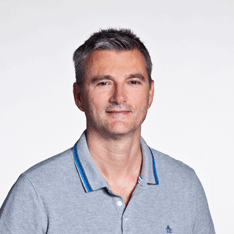
Purpose: The present workshop provides to early–career researchers and postgraduates with an overview of the publication process, and tips on how best to prepare research to be submitted for publication. To that end, throughout the workshop we (a) discuss some of the typical problems early–career researchers and postgraduate students face when preparing manuscripts for publication, and (b) practice thoroughly how to submit the best possible abstract as an example of how to submit best manuscripts for publication.Background: Publishing internationally is not a luxury activity of just a few but a must-do for all those who aim to disseminate their research findings and share knowledge. Whether one seeks to further knowledge in their field, scholarly recognition, a pay-rise or external funding, such a time–consuming activity must be done as efficiently and successfully as possible, with a view to maximise effort and possibility of publication. Success when submitting a manuscript for publication depends, ultimately, upon the originality, the quality and the strength of the work submitted. Nevertheless, people can improve their chances by targeting appropriate journals, following journal guidelines carefully, taking great care with presentation, and responding appropriately and in detail to the comments made by the reviewers, and the suggestions/demands of the editors.
Approach and Methods: Delegates will have the opportunity to engage in a series of hands-on case-examples (abstracts) that support the session’s theoretical components. The workshop encourages active participation amongst delegates throughout. All workshop material is provided to delegates on-site.
Xavier Sanchez, originally from Barcelona, is currently based in France (Laboratory CIAMS at Université d’Orléans and Université Paris Saclay). He has over 20 years of multi-disciplinary academic (sport psychology, sport sciences, psychology) and life experiences across Europe (France, Sweden, UK, The Netherlands, Belgium, and Spain).
Xavier is Doctor (PhD) in Psychological Sciences by the University of Louvain-la-Neuve (Belgium); both Chartered Psychologist (CPsychol) and Associate Fellow (AFBPsS) by the British Psychological Society; and registered sport psychologist (VSPN®) by the Dutch Society of Sport Psychology. He also possesses a post-graduate Teaching and Learning Degree in Higher Education by the University of Groningen, The Netherlands. Xavier has been actively involved with governing bodies over 16 years: he was a founding member of the Belgian French-speaking Society of Sport Psychology (SBFPS); the first President of the European Network of Young Specialists in Sport Psychology (ENYSSP); and regular member (4 years), General Secretary (4 years), and Vice-President (4 years) of the European Federation of Sport Psychology (FEPSAC). He has hold different academic and managerial positions in different universities and for different sport, exercise and psychology governing bodies.
Xavier research interests revolve around the following: Psychological aspects of regulation (emotion, motivation) and pressure performance; emotional regulation mechanisms (individual, group); identity, emotion regulation mechanisms and performance; psychology and climbing performance; risk and extreme sport; and sport and integration in multi-cultural/ethnical societies. He has published work in a wide-range of peer-reviewed journals in sport and exercise psychology, sport and exercise sciences, and mainstream psychology. Xavier is an editorial board member at International Journal of Sport and Exercise Psychology, International Journal of Sport Psychology, and Frontiers in Psychology (both sections ‘Movement Science and Sport Psychology’ and ‘Performance Science’).
Xavier has a broad experience in Higher Education, having delivered numerous invited keynotes, lectures, workshops and seminars throughout the years. He has also provided sport psychology services delivery to athletes and coaches at different competitive levels, from young elite to World class levels.
Title: “From “I should because it’s good for me” to “I want to because it’s fun”: Preparing a new paradigm of physical activity promotion”
Speakers: Panteleimon Ekkekakis (Iowa State University, U.S.A.)
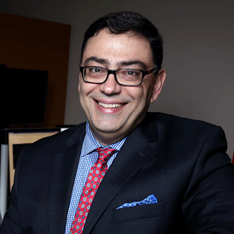
Emmanouil Georgiadis (University of Suffolk, United Kingdom)
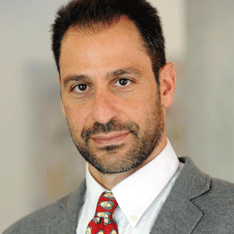
For more than a half century, physical activity has been promoted on the basis of the argument that it will reduce the long-term risk of premature death, disease, and disability. This social-marketing message, however, has not led to population-level increases in physical activity participation. A 2021 editorial in The Lancet noted that “there has been no improvement in global levels of physical activity” and experts recognize that “more of the same (in terms of research and practice) will not be enough” (Hallal et al., 2012, p. 191). Mounting evidence indicates that better results may be achieved by focusing on short-term valued outcomes, such as pleasure, enjoyment, energy, pride, fulfillment, stress relief, sense of well-being, and meaningful interpersonal connections. This approach requires a significant reorientation in how physical activity is promoted across settings and population groups, away from the traditional approach of providing individuals with data-laden arguments focusing on risk reduction and toward messages that can establish connections between the stimulus-concept of physical activity and varieties of positive affect.
The proposed workshop will begin with two presentations that will introduce fundamental concepts. The first presentation (Ekkekakis) will introduce the notion of “bounded rationality,” the idea of the “affect heuristic,” and dual-process models of behavior. The second presentation (Georgiadis) will explain the need for empathic appreciation, movement education, and breathing for exercise promotion, as well as introduce the concept of “design thinking” and an associated step-by-step methodology for problem solving.
Panteleimon (“Paddy”) Ekkekakis is a Professor of exercise psychology. After a 22-year career at Iowa State University, he is now serving as Professor and Chair at the Department of Kinesiology, Michigan State University. He is also an elected Fellow of the American College of Sports Medicine and the National Academy of Kinesiology of the United States. His research examines pleasure and displeasure responses to exercise, including their underlying cognitive and neurobiological mechanisms, and their implications for exercise behavior. He has developed the Dual-Mode Theory of affective responses to exercise and the Affective-Reflective Theory of physical inactivity and exercise (with Prof. Ralf Brand). Ekkekakis is the author of The Measurement of Affect, Mood, and Emotion: A Guide for Health-Behavioral Research (Cambridge University Press, 2013), the editor-in-chief of the Handbook of Physical Activity and Mental Health (Routledge, 2013), and co-editor of the Psychobiology of Physical Activity (Human Kinetics, 2006). Ekkekakis has presented keynote lectures, seminars, and workshops in over 30 cities in 15 countries outside the United States.
Dr Emmanouil (Manos) Georgiadis for the last nine years is a Senior Lecturer at the University of Suffolk (UK) and an expert in Sport and Exercise Psychology for more than twenty years. He has been a freelance Sport and Exercise Psychologist since 2005.
Dr Georgiadis has a background in both Sport and Exercise Science and Psychology. He is using a variety of educational and counselling methods both as an academic and as a Sport and Exercise Psychologist due to his training in the Eclectic method of psychological counselling. Through his research and applied work, is keen on improving performance, wellbeing, and quality of life for clinical and non-clinical populations.
As a tutor at the University of Suffolk, Dr Georgiadis has created and accredited (British Psychological Society; BPS) the BSc Course in Sport Psychology and he has been actively passing on his expertise on the applied and research skills related to Sport and Exercise Psychology, linking performance enhancement to health promotion and quality of life. He has been also creating Continuous Professional Development (CPD) courses supporting healthy lifestyles, presenting his methods in European and World Congresses and actively promoting the role of lifestyle factors for optimum functioning throughout the lifespan.
Title: “#SportPsychMapping: A professional solution for applied practice”
Speakers: Alexander T Latinjak (University of Suffolk, UK)
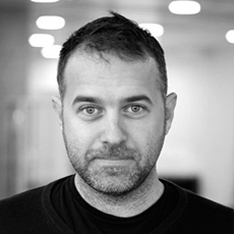
Dorottya Molnár (Independent practitioner, Hungary)
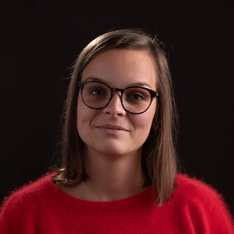
Title: “Once upon a time: Creative nonfiction as a way to communicate research”
Speakers: Francesca Cavallerio (Anglia Ruskin University, UK)
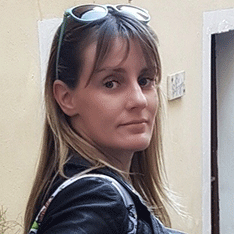
Creative nonfiction (CNF) is type of creative analytical practice that presents research findings through a story, drawing on literary techniques. As a literary genre, CNF offers scholars the opportunity to share research in a way that captivates the reader, evoking emotional responses and potentially reaching audiences beyond academia.
This quality makes CNF a powerful ‘tool’ for researchers and practitioners in the field of sport and exercise psychology, as it allows to disseminate and use research findings with audiences like coaches, athletes, and sport parents.
While the use of CNF is increasing in our field, many scholars are often discouraged to engage with such a different writing style. In this workshop, we will review the history of CNF, to better understand how and when to use it effectively, and then we will focus on the ‘how’ of CNF, exploring various techniques to accompany participants through the process of writing a CNF.
Francesca is a Senior Lecturer in Sport and Exercise Psychology with a focus on youth sport and sport injury. Her research area focuses on athletes’ welfare, exploring topics ranging from sport injury, coach-athlete relationship, the role of parents in sport. She is particularly interested in using creative and arts-based methods to conduct participatory research, to allow silenced populations to be heard and represented, and to communicate research findings to reach a non-academic audience.
Title: “Sport Injury: Assessing and Facilitating Psychological Adjustment”
Speakers: Leslie Podlog (University of Utah, U.S.A.)
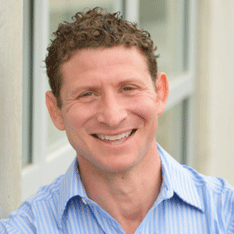
John Heil (Psychological Health*Roanoke)
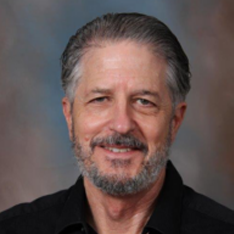
Dr. Les Podlog is an Associate Professor in the College of Health at the University of Utah. His primary research interest focuses on the psychosocial factors influencing injury rehabilitation and return to full function. He over 100 peer-reviewed research articles and book chapters in edited sport and exercise psychology outlets. Over the past 15 years, he has received research funding from institutions in Australia and the United States. In his free time he enjoys spending time with his family, travelling and hiking in the mountains surrounding Salt Lake City.
Title: “Biofeedback training for performance enhancement and sport”
Speakers: Elisabetta Patron (University of Padova, Italy)
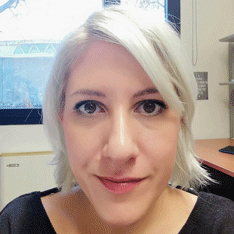
Penny Werthner (University of Calgary, Canada)
Biofeedback is a process through which the individual can learn to control a bodily function usually outside voluntary control (e.g., brain activity, heart rate). During biofeedback training, the presence of external information (i.e., the feedback) directly linked to a visceral or central function enhance bodily awareness and facilitate the process of learning to control that specific function (Schwartz and Andrasik, 2016). Research shows that biofeedback can facilitate self-regulation, allowing the individual to gain control over bodily responses that could be detrimental to well-being and performance, such as reducing anxiety, physical arousal, and improving concentration (Levy and Baldwin, 2019). In the last few decades, biofeedback of heart rate variability gained particular interest in various clinical and non-clinical applications (Lehrer et al., 2020). Specifically, heart rate variability biofeedback aims at improving autonomic nervous system regulation, by increasing cardiac vagal tone and baroreflex gain (Lehrer, 2013). In athletic settings, heart rate variability biofeedback has been reported to be effective in reducing anxiety, and perceived stress, improving concentration, improving fine and gross motor function, and athletic performance in different athletes such as professional dancers, basketball, golf players, and long-distance runners (Jimenez Morgan and Molina Mora, 2017; Pagaduan et al., 2020). Therefore, through biofeedback, athletes can learn to develop a deeper level of self-awareness and improve autonomic nervous system regulation, which in turn could facilitate the use of self-regulation strategies intended for improving health, well-being, and optimal performance.
Elisabetta Patron graduated in Psychology in Padua in 2009; in 2014 she obtained a Ph.D. in Psychobiology at the University of Padua. She is currently an Assistant Professor at the Department of General Psychology in Padua. Her main research interest concerns the brain-hart interplay in healthy and clinical conditions, and the clinical applications of biofeedback and neurofeedback, especially in the areas of stress and mood anxiety disorders. She teaches theoretical-practical training courses in health psychology and biofeedback. She also collaborates with the Biofeedback and Psychophysiology Unit at the University Clinical Psychological Service in Padua.
PRE-CONGRESS workshop and seminar (2 hours in the early afternoon).
During the registration, you can select one among them.
Title: “Co-production: What is it, why do it, and how might it be done?”
Speaker: Brett Smith (Durham University, UK)
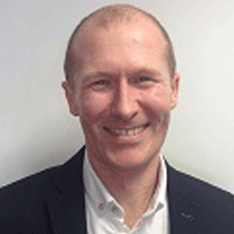
There is growing interest in co-production in sport and exercise psychology. This has arisen partly as a means to advance a participatory and cultural turn. Despite the interest in co-production, details on the co-production of research and how to take it forward are lacking. The objective of this workshop is to enhance knowledge of co-production and provide opportunities for how we might advance co-produced research in order to make a genuine difference with people in (in)active communities, sporting contexts, and different cultures. To meet this objective, we will first discuss what is meant by co-production. An original typology is offered to think about different ways co-production is defined and put to use. These are: Citizens’ Contributions to Public Services; Integrated Knowledge Translation; and Equitable and Experientially-informed Research (Smith et al., in-press). The workshop will then attend to why sport and exercise psychologists might turn to co-producing research along with various challenges involved with doing it. We will also discuss practical options for how to co-produce research and various criteria for judging the quality of it. No knowledge of co-production is needed for the workshop. But a curious mind and an interest in wanting to make a difference beyond just publishing would be beneficial.
Reference
Smith, B., Williams, O., Bone, L., & the Moving Social Work Co-production Collective. (in-press). Co-producing research: A resource to guide co-production in the sport, exercise and health sciences. Qualitative Research in Sport, Exercise and Health.
Title: “Self-care as the bedrock of ethical and competent service delivery”
Speakers: Alessandro Quartiroli (UW – La Crosse, U.S.A.)
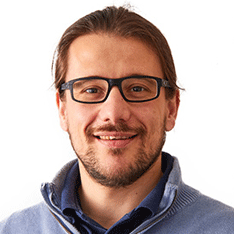
Scholars from psychology professions have identified self-care as the bedrock of ethical and competent service delivery (Barnett et al., 2007). Scholars have evidenced the importance of self-care for the promotion of personal and professional well-being (Dorociak et al., 2017) as well as for practitioners to provide ethical and effective service delivery, while striving to reach their fullest potential (Barnett et al., 2007; Norcross & VandenBos, 2018). Nevertheless, the value of self-care for sport psychology practitioners (SPPs) has only received limited scholarly attention (Quartiroli et al., 2019; 2021). SPPs around the world encounter various challenges and stressors working in applied practice and their own self-care may be vital to their work, helping to promote healthy functioning and enhance wellbeing. While, anecdotally, self-care has begun to receive some attention among SPPs and sport organizations, the journey towards self-care appears to be still unclear to trainees and young professionals (Martin et al., 2022) and to only be the results of situational experience for advanced practitioners (Quartiroli al., 2019). This workshop aims to contribute to the SPPs’ individual journey toward an effective conceptualization, implementation, and commitment to self-care in their lives; integrating theoretical knowledge and applied experiences. SPPs will be exposed to the recent self-care scholarship and will be invited to engage in a series of individual and group reflective activities aimed to contribute to their individual journey toward self-care. Recommended to trainees and early career professionals, the workshop may be helpful to SPPs throughout the entire professional career span.
Ale Quartiroli, PhD, CMPC, CPsychol, NCC, FAASP, RAPPS. Starting June 2022, I hold a position as Professor of Psychology at the UW – La Crosse (US) as well as a Visiting Reader at the University of Portsmouth (UK). Originally from Italy, I received my training in Italy, Spain, and the United States. I am a certified mental performance consultant (CMPC) and approved mentor with the Association for Applied Sport Psychology, a national certified counselor (NCC) with the National Board of Certified Counselors, a Chartered Psychologist (CPsych) and an approved supervisor (RAPPS) with the British Psychological Society. Currently, I am a member of the Executive Board and a Fellow of the Association for Applied Sport Psychology as well as a member of the Managing Council of the International Society of Sport Psychology. My main areas of interest expand around the idea of supporting future and current professionals in their development and practice. I am particularly interested in understanding and improving the self-care, wellbeing, and professional experience of helping professionals and supporting future and current practitioners to develop both personally and professionally, while providing an ethical, competent, culturally grounded, and effective service delivery. In addition to my academic role, I am also involved in applied practice with athletes and exercises in my community and in supervising the professional practice of early career and in-training sport psychology professionals. When I am not working, you can find me spending time with my girls, Ara and Maral, and my partner, Sheyda, listening and dancing to a wide range of international music (does not mean I am good at it!). My favorite motto: HAKUNA MATATA
Title: “Mental Health and Performance: Considerations for Sport Psychology Practitioners”
Speaker: Nicole Terese Gabana (University of Massachusetts, USA)
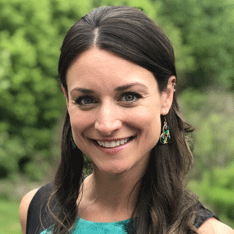
Kensa Gunter (Private Practice, Atlanta, GA, U.S.A.)

Mental health stigma tends to be exacerbated in athletic culture, where misinformed, stigmatizing messages about what it means to be “mentally tough” may leave athletes feeling hesitant or fearful of seeking mental health care when needed. In this workshop, presenters will review the scientific literature on mental health and performance, including topics of competency, education/training, cultural factors (individual/organisational), assessment, and treatment. Empirically supported approaches to enhance mental health literacy and improve help-seeking attitudes and behaviors in sport will be discussed. Presenters will facilitate discussion regarding attendees’ experiences, best practices, and future needs. Attendees will leave with a better knowledge of the current science and practice of the integration of mental health and performance, as well as tangible approaches which can be incorporated into new or existing programming in sport contexts.
Dr. Nicole Gabana is a Licensed Psychologist and Certified Mental Performance Consultant (CMPC) through the Association for Applied Sport Psychology (AASP). She is passionate about helping high-performing individuals thrive in performance and life, and practices a strengths-based, holistic approach which views the performer as a person first. Dr. Gabana has served as the Director of Sport Psychology for the University of Massachusetts (Amherst, MA, USA) and an Assistant Professor of Sport Psychology at Florida State University (Tallahassee, FL, USA). Dr. Gabana has worked with a range of professional, collegiate, and youth athletes and is listed in the United States Olympic & Paralympic Committee Mental Health Registry. Dr. Gabana has been published in numerous academic journals and book chapters. Her empirical work has focused on the integration of mental health and performance, specifically the areas of positive psychology, gratitude practice, and mental health stigma reduction in sport.
Title: “Developing Resilience in Elite Sport: The Role of the Environment and Psychological Safety”
Speakers: Mustafa Sarkar (Nottingham Trent University, UK)
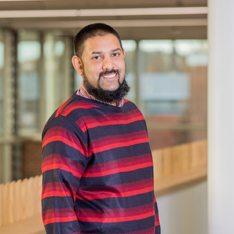
Resilience and its development has arguably become one of the most talked about topics in elite sport over the last few years. Although practitioners have tended to focus on individuals’ ability to withstand pressure, there is a growing recognition that more attention needs to be paid on creating environments that athletes can thrive in as both a person and a performer. Of fundamental importance to creating an environment that develops resilience is the provision of high challenge and high support (Sarkar, 2018). A crucial feature of this high challenge-high support (facilitative) environment is psychological safety. Psychological safety has been defined as a belief that a team is safe for interpersonal risk-taking (Edmondson, 1999). Although the concept of psychological safety has been studied extensively in business (Newman et al., 2017), it has only recently been investigated in a sporting context (Fransen et al., 2020) and there is limited information on applying this research in practice. Therefore, the learning objectives of this pre-congress workshop are threefold: to collectively discuss the role of a facilitative environment in developing resilience and what it might ‘look like’ in elite sport, to critically review the concept of psychological safety and, utilizing this knowledge, to subsequently work collaboratively with workshop attendees to generate some practical ideas for creating psychological safety in practice. The workshop will encompass a series of interactive activities, whereby small groups of attendees will discuss, contextualize, and offer feedback on the role of the environment and psychological safety in developing resilience in elite sport.
Dr Mustafa Sarkar is an Associate Professor of Sport and Performance Psychology at Nottingham Trent University in the UK. His research and consultancy focuses on the psychology of performance excellence in sport, business, and other performance domains. His work addresses how high achievers thrive on pressure and deliver sustained success and well-being, with a particular focus on resilience (at individual, team, and organizational levels) and psychological safety. As well as publishing research in this area, as a Chartered Psychologist (CPsychol) with the British Psychological Society (BPS), Dr Sarkar works closely with teams and organizations on creating environments and cultures to develop resilience and psychological safety, including the Premier League, the English Football Association, and the United States and Netherlands Olympic Committees.
